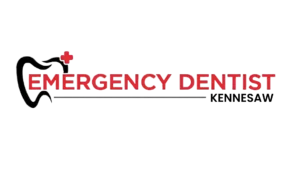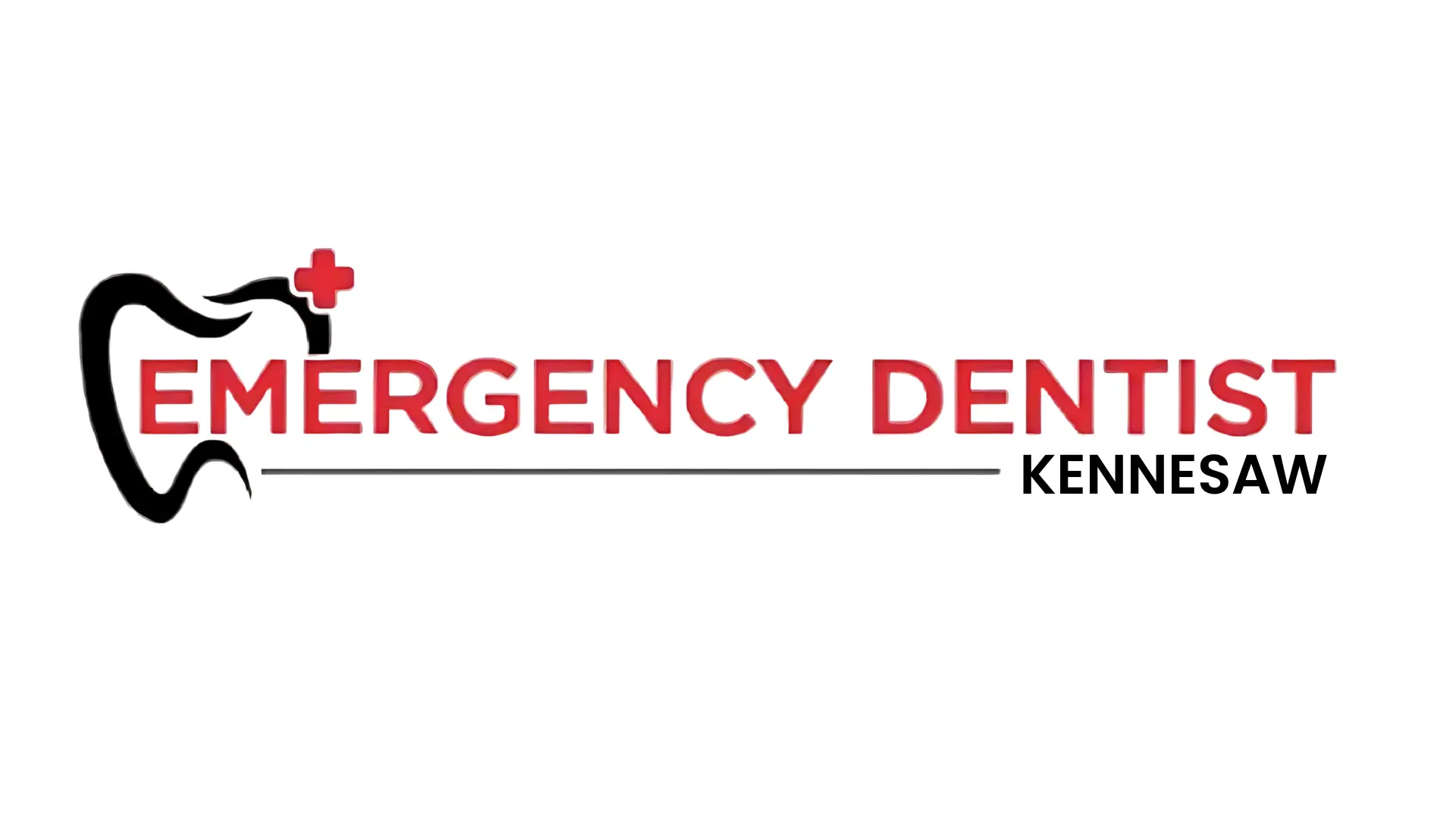Chipped Tooth: At-Home Care & Urgent Dental Help
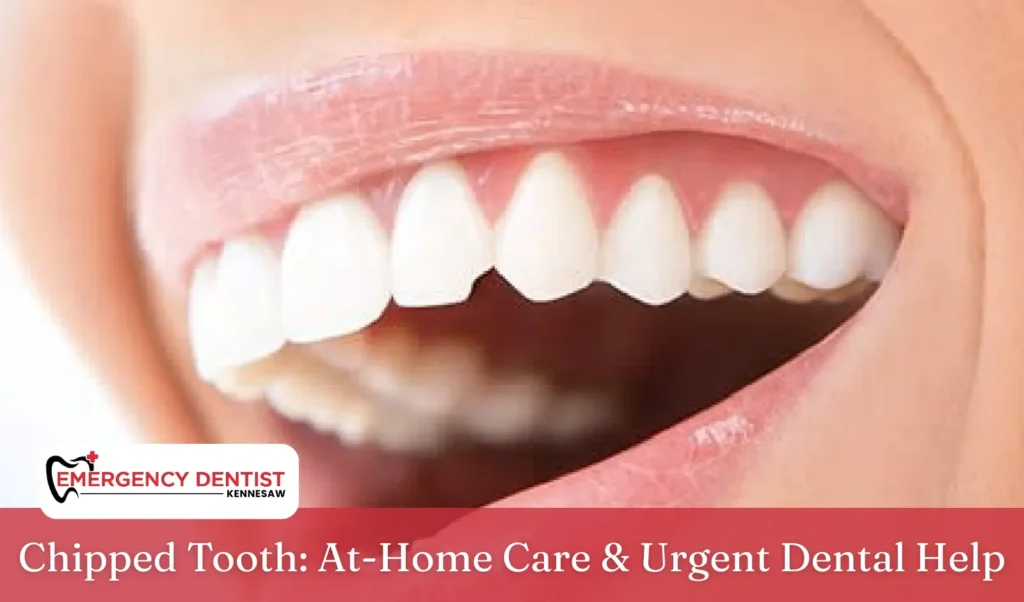
A chipped or broken tooth can happen suddenly, whether you’re biting down on something hard, suffering a fall, or grinding your teeth at night. While a minor chip might only damage the outer layer of the tooth enamel, deeper chips can expose the blood vessels and nerves inside, leading to pain or a higher chance of infection.
Whether you’re dealing with a small chip, a jagged edge, or a more serious crack or chip, this guide explains what to do for a chipped tooth, including home remedies, pain relief strategies, and when to seek an Emergency Dentist in Kennesaw.
What Causes a Chipped or Cracked Tooth?
Knowing how a chip happens can help with prevention. Common causes include:
- Biting into hard foods like candy, nuts, or ice
- Sports injuries or accidents
- Untreated cavities that weaken the tooth
- Nighttime teeth grinding (bruxism)
- Using teeth to open bottles or packages
Avoiding these behaviors can help protect your smile, but if a chip has already happened, here’s what to do for a chipped tooth at home.
Home Remedy: What to Do for a Chipped Tooth at Home
Can’t get to a dentist right away? Try these steps for temporary relief and protection:
- Rinse with warm salt water to clean the area and prevent infection
- Apply a cold compress to reduce swelling
- Cover any sharp edges with dental wax or sugar-free gum to avoid cuts
- Avoid biting or chewing on the chipped tooth
- Eat soft foods until you can see your dentist
If you find a broken piece, place it in milk or saline and bring it to your appointment, it might help with fixing a chipped tooth
What to Do for a Chipped Tooth Pain
Pain levels vary depending on how deep the chip is. If the damage reaches the inner layers, including dentin or pulp, you might feel sharp or throbbing pain.
Here’s what to do for a chipped tooth pain:
- Take over-the-counter pain medication like ibuprofen
- Use a cold compress on your cheek near the affected area
- Avoid hot, cold, or sugary food and drinks
- Apply clove oil or numbing gel as a home remedy for short-term relief
- If pain continues, visit a dentist as soon as possible
Minor vs. Major Chips: Know the Difference
Not every chipped tooth is an emergency, but knowing what you’re dealing with is key to long-term oral health:
Minor Chip
- A small piece of tooth enamel is missing
- No pain or mild sensitivity
- Usually only a cosmetic concern
Major Chip or Crack
- The tooth feels rough or jagged
- Significant pain or sensitivity
- Bleeding near the gum line
- A visible break or large missing piece
Even a minor chip can get worse over time, so it’s important not to ignore it.
How Dentists Repair a Chipped Tooth
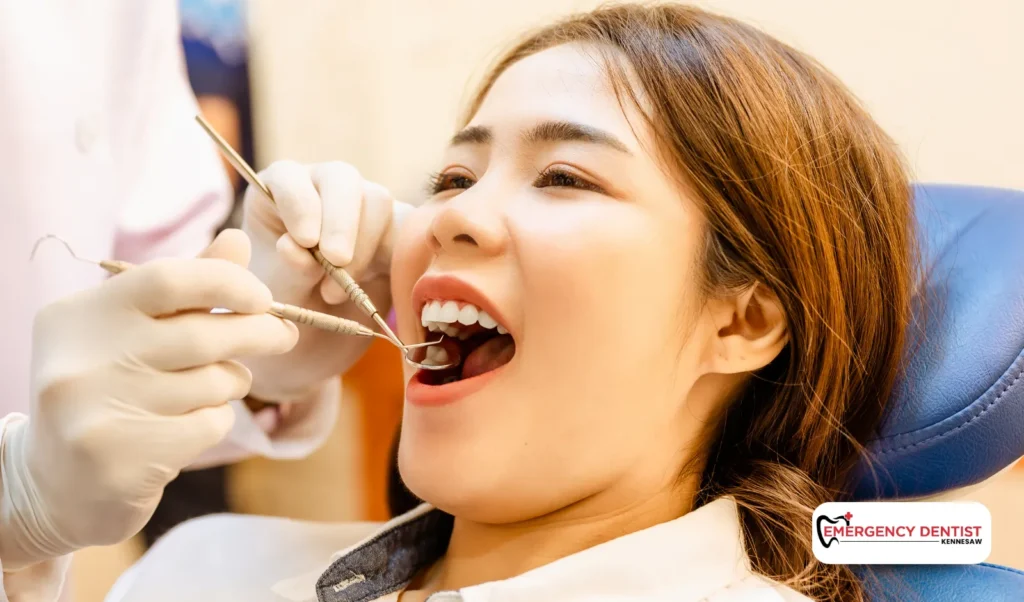
Depending on the severity, your dentist in Kennesaw may recommend the following:
- Dental Bonding – Perfect for fixing a chipped front tooth or small chips. A tooth-colored resin is applied and shaped to blend naturally.
- Dental Crowns – Used when a large portion of the tooth is damaged. Crowns restore both strength and appearance.
- Veneers – Ideal for cosmetic repairs on front teeth, veneers cover the surface with thin porcelain for a smooth look.
- Root Canal – Needed if the damage affects the inner blood vessels or nerves. A root canal removes infected tissue before placing a crown.
When Is It a Dental Emergency?
You should seek an Emergency Dentist in Kennesaw if:
- Pain is severe or long-lasting
- The chipped tooth is near the gum line
- The tooth is loose or sensitive
- You notice swelling or signs of infection
An Emergency Dentist in Kennesaw offers same-day treatment, including evenings and weekends.
Preventing Future Chips: Long-Term Tips
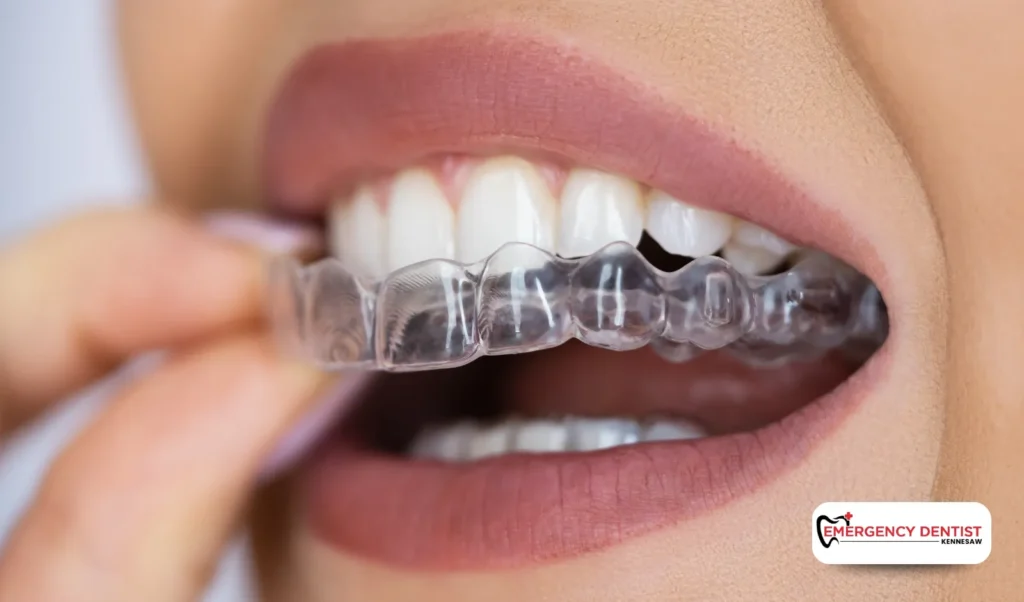
Once you repair a chipped tooth, protect your teeth from future damage by:
- Wearing a nightguard if you grind your teeth
- Avoiding ice and hard foods like candy
- Never using your teeth to open things
- Keeping up with regular checkups and cleanings
- Practicing good hygiene to protect the outer layer of your teeth
Don’t Ignore a Chipped Tooth
A small chip might not seem like a huge deal, but even a tiny jagged edge can cause discomfort or lead to worse problems. Whether you’re experiencing pain when chewing, a visible crack, or sensitivity, knowing what to do for a chipped tooth at home is the first step to staying pain-free.
If you’re unsure, schedule a visit with an Emergency Dentist in Kennesaw. Early care can relieve pain, prevent infection, and repair a chipped tooth quickly and effectively.
Frequently Asked Questions
What actions should be taken immediately following a chipped or broken tooth?
If you chip or break a tooth, rinse your mouth with warm salt water to clean the area. Apply a cold compress to the outside of your face to reduce swelling. Avoid chewing on the affected side, and cover any sharp or jagged edges with dental wax or sugar-free gum. Schedule an appointment with your dentist as soon as possible.
Does a chipped front tooth qualify as a dental emergency?
It depends on the severity of the chip. A small chip in the front tooth may only affect appearance, while a deeper chip causing pain, bleeding, or sensitivity could require urgent care. It is best to have a dentist evaluate the tooth right away.
What are the primary causes of chipped or cracked teeth?
Teeth may chip or break from biting hard objects such as candy or ice, experiencing sports-related injuries, having untreated cavities that weaken the tooth structure, grinding teeth during sleep, or using teeth as tools to open packages.
What methods are effective in alleviating pain caused by chipped teeth?
To reduce discomfort, you may take over-the-counter pain relievers such as ibuprofen, avoid hot or cold foods, and apply a cold compress to the cheek near the damaged tooth. Clove oil or numbing gels may provide temporary relief, but it is advisable to consult your dentist if the pain continues.
